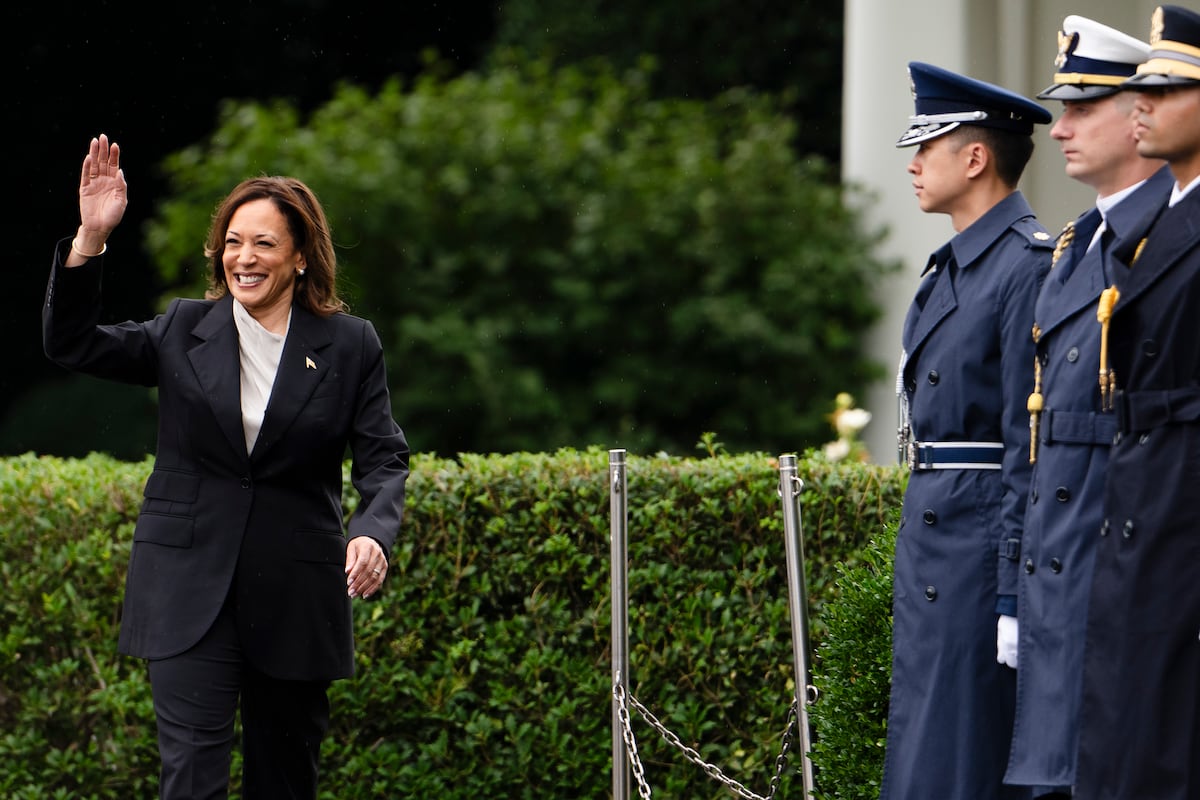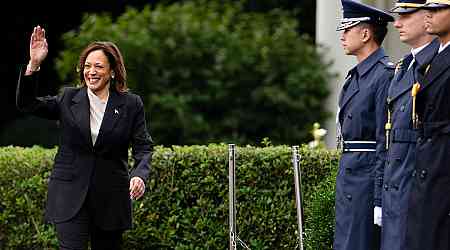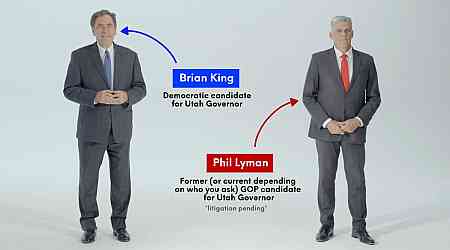The world is watching as Americans once again face the choice of electing our first female president, joining over two dozen nations already led by women.
Electing a female president would bring America in line with global advances in gender equality, reflect America’s rich ethnic makeup and prevent alienating voters who reject misogyny and racism. A female president would confirm women’s true portrayal in our varied Scriptures, inspire countless American women to participate in public service and demonstrate to the world that greatness is not bound by gender but by the pursuit of one’s mandate, personal or spiritual.
But Kamala Harris’ path to the White House will not be easy. She must persuade voters of her ability to lead and achieve desired policy outcomes. So far in that endeavor, she has chosen to not highlight her identity as a woman like Hillary Clinton did in her campaign for president. Yet even still, Harris has seen insults about her femininity from conservative Christian pastors who have compared her to the biblical Jezebel — a wicked, immoral and defiant woman unfit for the highest office.
Sadly, these attitudes are rooted in deep-seated prejudice rather than Scripture. They originate from patriarchal empires that prized military conquest and male traits while undermining femininity and compassion as weak. This cultural bias relegated women to subordinate roles, defining their primary function as reproductive and using this to justify their marginalization.
Statements like JD Vance’s derogatory remarks about some working women — “childless cat ladies” who are “miserable” — underscore this ongoing social bias.
Surely people of faith know that there are spiritual aspects of childlessness. The Quran states, for example, that “He blesses whoever He wills with daughters, and blesses whoever He wills with sons, or grants both, sons and daughters, to ‘whoever He wills,’ and leaves whoever He wills infertile” (49:50). In Luke 23:29, Jesus states, “Blessed are the barren, and the wombs that never bore, and the breasts which never nursed.”
Despite being childless, Moses’ adoptive mother was selected for a profound spiritual mission — to raise a prophet. Women like me, who have found a higher calling to serve humanity despite being childless, have achieved more than our critics could imagine. Many childless women are high achievers, making significant contributions to society, as evidenced by Harris, who is running for the highest office in the world as a stepmother but not a birth mother.
Scripture does not prevent women from assuming leadership roles. In Matthew 12:42, Jesus highlights the Queen of Sheba for recognizing Solomon’s wisdom. “The Queen of the South will rise at the judgment with this generation and condemn it; for she came from the ends of the Earth to listen to Solomon’s.” Similarly, the Quran depicts the queen as an archetype of a wise political leader who accepts Solomon’s greater powers (27:44). As a politically and intellectually astute leader, she chooses peace over war.
In contrast, the Quran depicts the pharaoh as a tyrant, who refuses to recognize Moses’ extraordinary powers and whose egotistical wrath is focused on women and children: “Kill the sons of those who believe with them [Moses] and keep their women” (40:25). This juxtaposition of a male and female leader highlights that gender is not a determining factor for effective leadership; rather, meritocracy is. An effective leader is someone who can exert influence in achieving goals, rather than someone who manipulates to lead.
Since the Quran describes a female political leader as an archetype of a leader, many extraordinary female political leaders emerged during medieval Muslim civilizations, whose political power had a tremendous influence on society. For example, in Yemen, Sayyida Hurra Arwa bint Ahmad al-Sulayhiyya (died 1138 CE) stood as a shining example of political and spiritual leadership. For an astounding 70 years, she ruled the Sulayhid dynasty. She held the prestigious title of hujja (spiritual leader) and had the khutba (special Friday prayer) recited in her name, solidifying her authority.
Over the past five decades, 15 female heads of state have led Muslim-majority countries, highlighting the view that political authority is a sacred trust with inordinate responsibility. In stark contrast, the Taliban, who reject Islam’s principles of egalitarianism, dissolved the Afghan Parliament after their takeover in August 2021. This action led to most female parliamentarians losing their positions and effectively barred all women from public roles, whether political or civil.
In a world rife with war and conflict, a female leader can use an intuitive approach to consensus-building to overcome political gridlock, enabling Americans to rise above partisan loyalties, race-baiting and gender animus. Harris appeals to voters by emphasizing unity through forward-looking proposals and respectful engagement, in contrast to her opponents, who rely on outdated adversarial tactics.
By choosing candidates based on their ability rather than their identity, we can bridge ideological divides and address shared concerns more effectively. For starters, Harris emphasizes substantive issues such as health care reform and climate change. Her record highlights her advocacy on matters of national concern, including addressing student loan debt, securing COVID-19 relief, combating foreclosure abuses and working to eliminate private prisons.
After 9/11, a strong sense of duty drove me to leave my corporate career and devote myself to community work. This change gave me a perspective on women’s leadership to break down barriers and connect people.
More than ever, Americans are ready for a president who reflects the diversity of its people — a biracial woman with an interfaith family who embodies the strengths and confidence women bring to leadership. If Americans elect a female president, I hope she will lead differently, prioritizing social issues — like worker rights, child care and gun safety — and the welfare of all citizens. I also hope she will champion a vigorous pursuit of peace in the Holy Land, guiding the world away from conflict and toward a more prosperous and just future.
Daisy Khan is founder of the Woman’s Islamic Initiative in Spirituality and Equality and the author of “30 Rights of Muslim Women: A Trusted Guide.” The views expressed in this commentary do not necessarily reflect those of Religion News Service.





























